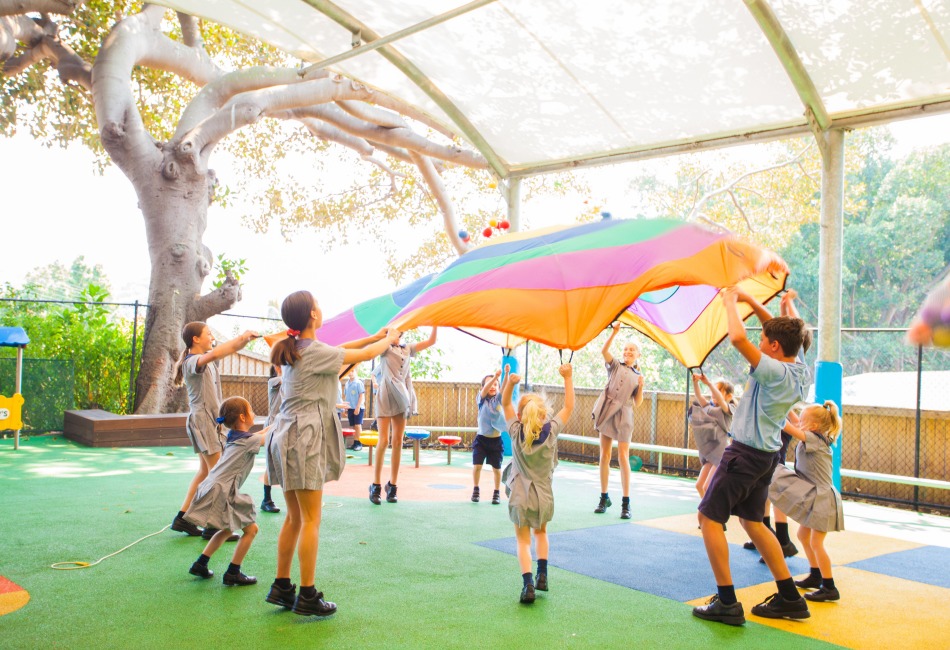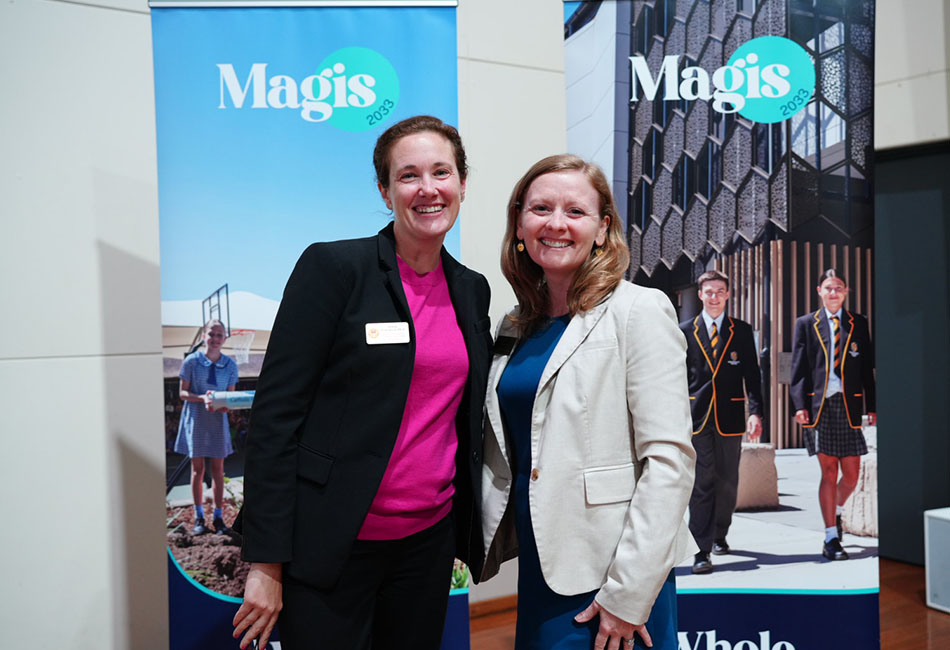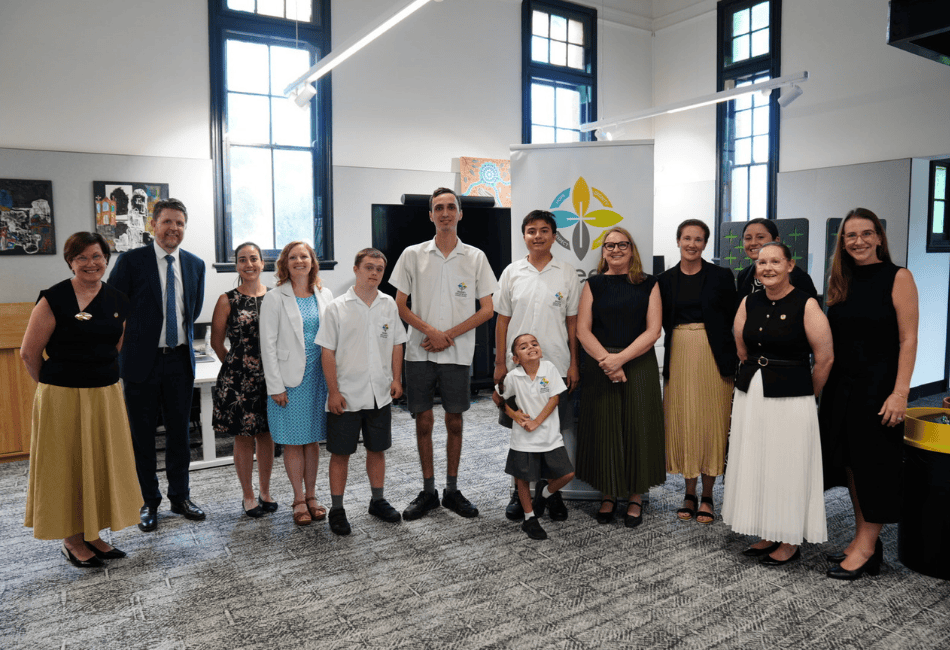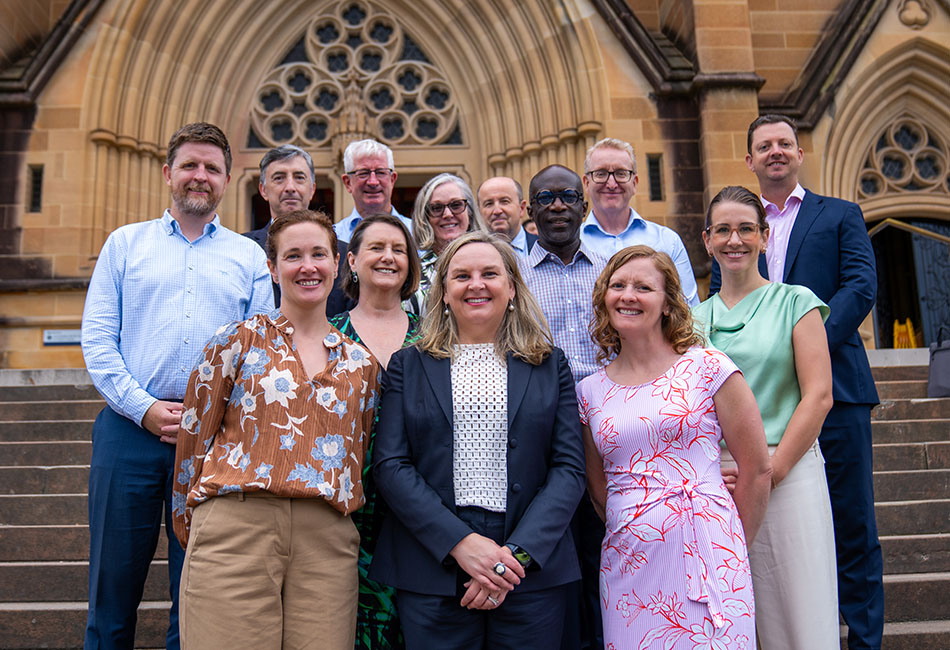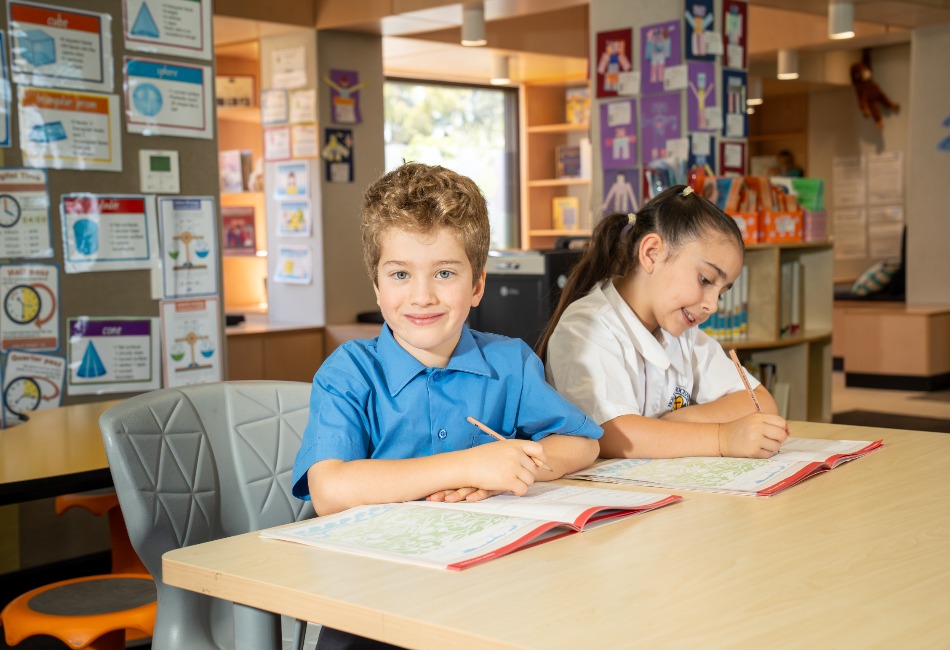Spilling from a bustling Year 3 classroom to the leafy learning space beyond, students are immersed in creation.
There is chatter, movement, and wonder as they collect and build together with sand, water, blocks, cardboard, clay, leaves, pipes, feathers and more.
As they flow through the task, the students are the essence of the International Day of Play, a celebration of the universal language of childhood and the creativity it fosters for all ages.
The United Nations’ very first International Day of Play is on 11 June, placing play — and all its benefits — on the agenda of policy makers, communities and education providers around the world.
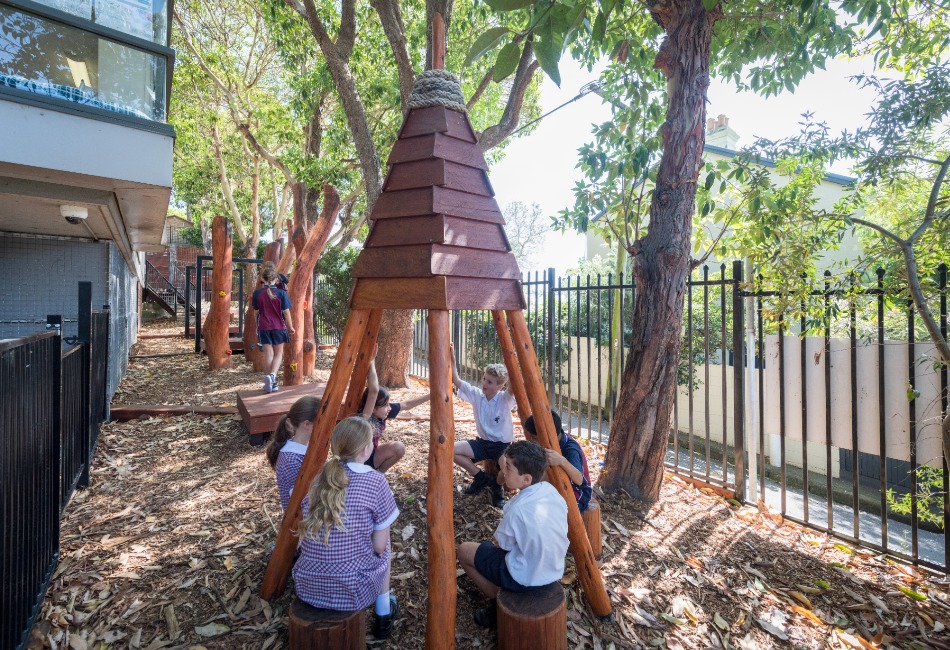 At Sydney Catholic Schools, play is already valued for the positive impact it has on the learning, development and wellbeing of children of all ages.
At Sydney Catholic Schools, play is already valued for the positive impact it has on the learning, development and wellbeing of children of all ages.
“Play immerses children in creating strategies and solving problems,” said Sydney Catholic Schools’ Specialist: Early Years (Pre K- 4) Curriculum, Kim Moroney.
“The joy of play gives them the incentive to develop complex reasoning skills, memory, and concentration.
“Play also ignites flexible thinking which will support children to adapt to whatever life challenges the world has to offer them.”
“Play creates a brain that has increased flexibility and improved potential for learning later in life.” – Kim Moroney
Play ‘a biological necessity’
Ms Moroney received the Br John Taylor Fellowship for educational research to study the impact of play on the learning of children in 2017.
Her research took her to Finland, Sweden, Anji County in China, and the University of Cambridge’s Centre for Research on Play in Education, Development & Learning (PEDAL).
Ms Moroney presented her research at The International Play Association’s 2023 World Conference in Glasgow, Scotland.
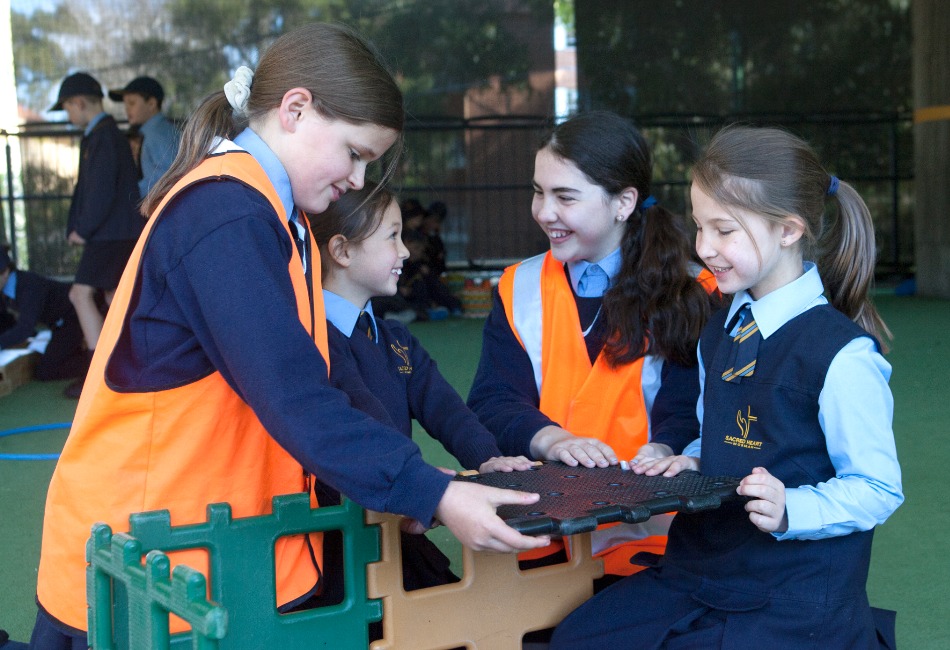 “Science tells us that play builds brains,” she said.
“Science tells us that play builds brains,” she said.
“The act of playing has an impact on the architecture and organisation of the brain and assists in building and strengthening neural pathways.
“Play creates a brain that has increased flexibility and improved potential for learning later in life.
“In fact, research dictates that play is a biological necessity, for children and adults alike.”
“Play provides a child an opportunity to build friendships, connecting with others to discover together.” – Kim Moroney
Play: the school context
Ms Moroney said play was just one element of a rich repertoire of teaching practices that help students to access the curriculum.
Through play, students can practise a broad range of skills, develop theories, and understand concepts more deeply.
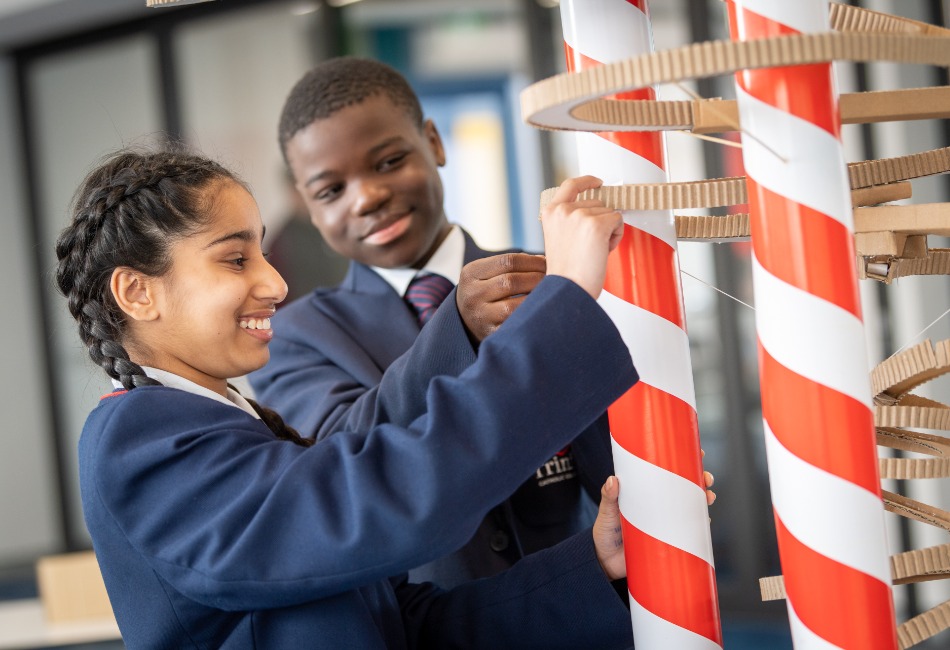 This gives it a valuable place in primary schools, before school services and secondary schools.
This gives it a valuable place in primary schools, before school services and secondary schools.
“Learning through play happens best when it is experienced as joyful, meaningful, actively engaging, iterative—that is, trying out and testing ideas—and involves social interaction,” Ms Moroney said.
“It may look different at each stage, but play is ever present in our lives.
“Sport is a form of play, pursuing a passion is a form of play. Art, music, design, and construction can all be playful.”
“It is through play that children … connect with the world in the most joyful and profound ways.”
Why make an International Day of Play?
Play is enshrined by the United Nations Convention on the Rights of the Child as a fundamental right.
Figures released by the UN show the importance of the International Day of Play in changing policy and attitudes towards play as a source of learning and wellbeing.
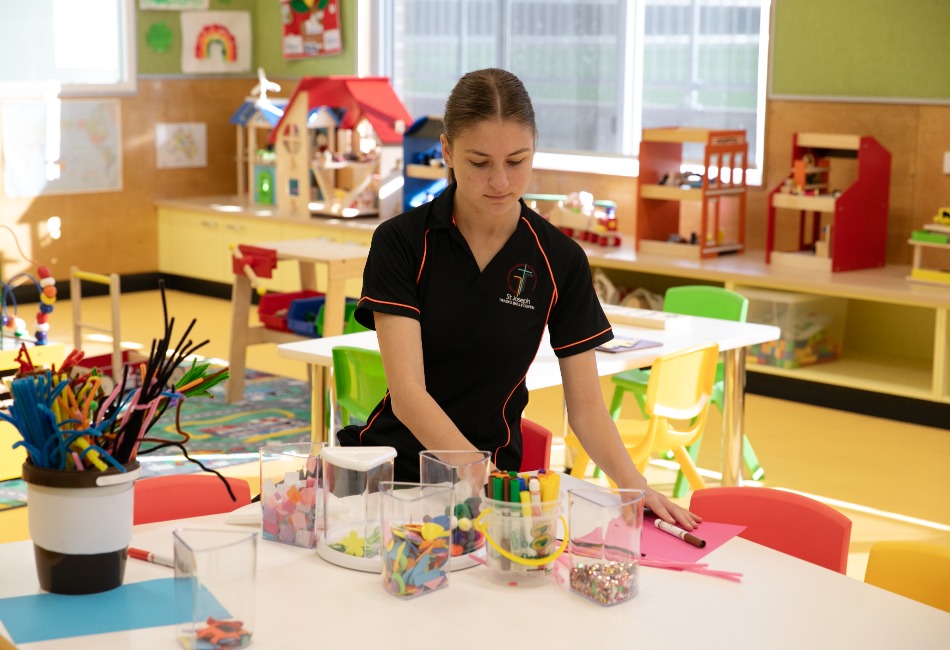 The organisation estimates about 160 million children around the world are working instead of playing or learning.
The organisation estimates about 160 million children around the world are working instead of playing or learning.
Meanwhile 71 percent of children say play is important, and more than half say that play helps them to make friends.
Ms Moroney said the event would challenge people to pause and consider the role of play in children’s lives.
“We need to ensure time for play is prioritised and not viewed as a frivolity,” she said.
“It is through play that children discover their true selves and connect with the world in the most joyful and profound ways.”

